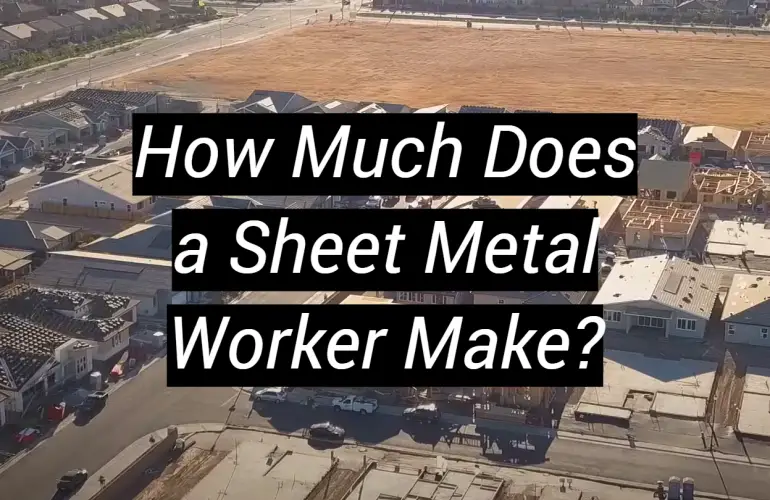How Much Does a Sheet Metal Worker Make?
So you want to be a sheet metal worker? Great choice! This skilled trade offers plenty of opportunities for those who are looking for a stable career with good pay. But how much does a sheet metal worker make, exactly? Let’s take a look.
What Does a Sheet Metal Worker Do?
A sheet metal worker is a specialist at crafting, setting up and mounting products that are made from sheet metal. In construction, these workers typically form duct systems for HVAC and other ventilation systems. They may also be responsible for building roofs and siding for commercial buildings such as warehouses, factories, and shops.
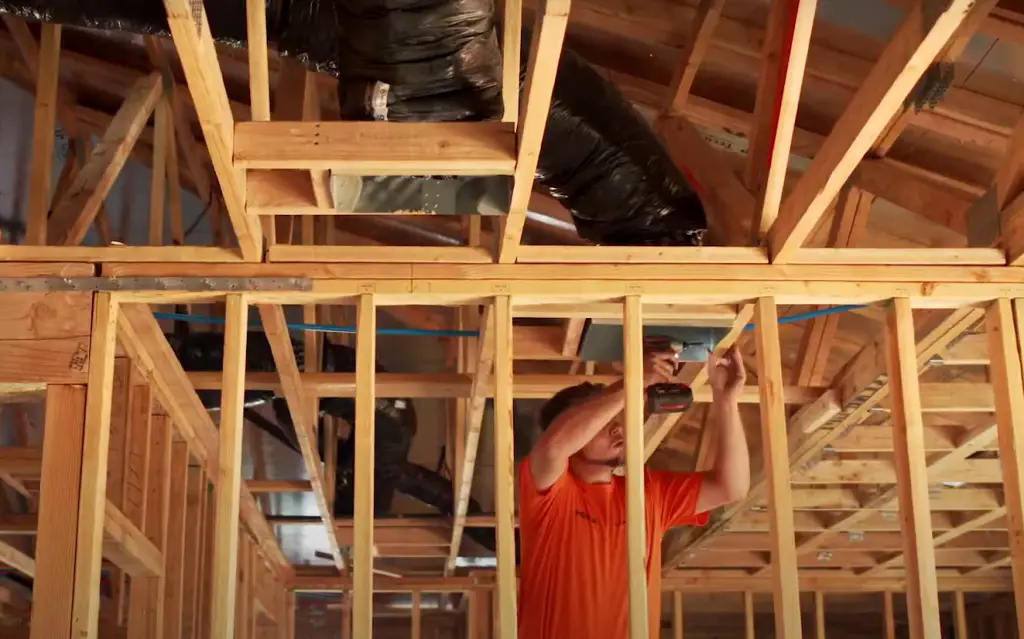
Sheet metal workers often inspect the finished product to ensure that it meets all safety standards before installing it. Additionally, they review blueprints and layout diagrams in order to understand exactly how a product should be constructed. Sheet metal workers may also work with other tradespeople on larger projects, such as roofs and ventilation systems.
Overall, a sheet metal worker plays a significant role in the construction industry since they help to create and install products that provide a necessary function in any building or project. The job of a sheet metal worker can be physically demanding, depending on the type of project they are working on. Those who perform this job must understand how to use tools like hammers, grinders, saws, drills, and more safely and efficiently. [1]
How Much Does a Sheet Metal Worker Make?
From installing to repairing, sheet metal workers are expert craftsmen who specialize in crafting and fabricating products out of thin sheets of metal. They typically work in construction or manufacturing plants as part of a team that does everything from cutting and shaping the metal to welding and riveting it into place. Given their specialized skills, sheet metal workers can command high salaries depending on the job description, location, and experience level.
Salaries tend to be higher in metropolitan areas where there is more demand for skilled labor. The median annual salary for sheet metal workers was $43,480 in 2019, although wages can vary significantly depending on experience and location.In addition to their salary, many sheet metal workers may receive additional benefits such as paid leave, health insurance, and pension plans. Sheet metal workers may also be eligible for overtime pay in some cases. It is important to note that the wages and benefits of a sheet metal worker can vary greatly based on the company they work for, so it is best to research the specific job description before applying. [2]
Pros and Cons of Working in a Sheet Metal Production Environment
Pros
- Good wages and benefits: With the right level of experience, sheet metal workers can earn competitive salaries and benefit from companies that offer solid health insurance and other job perks.
- Career Mobility: Many sheet metal production facilities allow their workers to move up within the company based on expertise or seniority. This provides an opportunity for professional growth.
- Variety of Skills: There are plenty of career paths available for those who specialize in sheet metal production. Various roles such as welding, machining, finishing, installation and quality assurance all require different skill sets which can be developed over time.
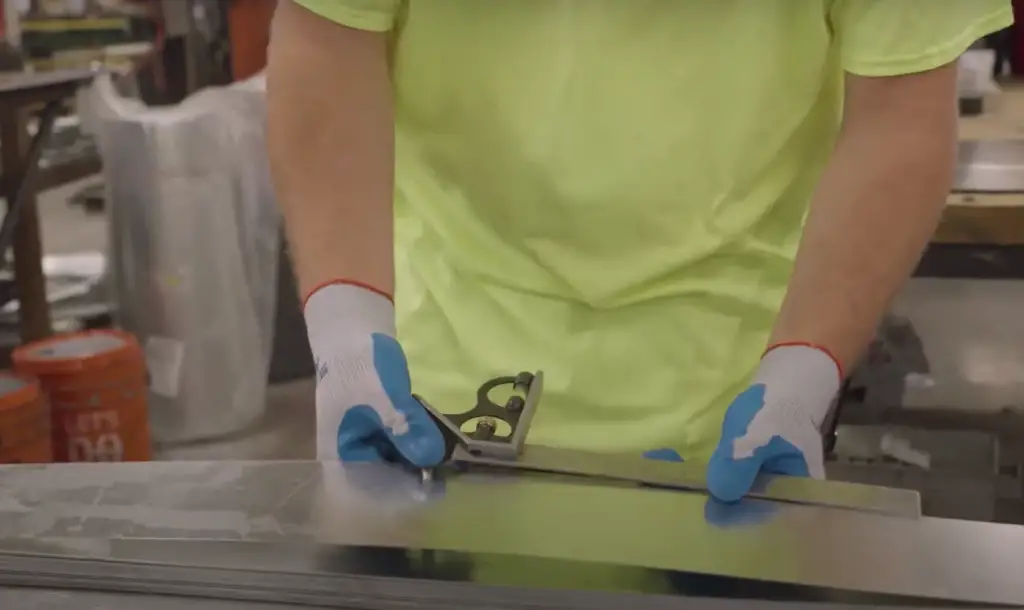
Cons
- Working Conditions: Many sheet metal production facilities tend to be noisy, hot and require the use of heavy machinery. There is also the potential for exposure to hazardous materials such as lead or other metals.
- Physical Demands: Sheet metal workers are required to handle large pieces of material which can often be quite heavy or awkward in shape. This may involve lifting, bending, kneeling and reaching for long periods of time which can be physically demanding.
- Stressful Environment: It is common for sheet metal production environments to have tight deadlines and high productivity expectations that can create a stressful work environment. Additionally, errors or mistakes due to inexperience or miscommunication can add additional pressure.
Overall, working in a sheet metal production environment has its upsides and downsides. With the right level of expertise, good wages can be earned along with the potential for career mobility. However, working conditions may not always be ideal, as there is potential exposure to hazardous materials and physical demands that come with producing sheet metal products. Stressful deadlines and expectations are also common in these work environments. Ultimately, it is up to the individual to decide if a sheet metal production job suits their needs or not.
Sheet Metal Worker Responsibilities
The responsibilities of a Sheet Metal Worker involve fabricating, assembling, and installing sheet metal products while adhering to safety regulations. They use their knowledge of the materials and tools used in sheet metal fabrication to build objects including ducts, siding, gutters, air conditioning units, and more.
They often work with other workers who specialize in welding or soldering to create complex components. They are also responsible for quality control measures such as checking measurements and conducting tests on the finished product before installation.
Additionally, they may need to perform maintenance tasks such as painting or cleaning equipment as needed. To stay safe while working with heavy machinery and sharp objects they must take all necessary precautions. Sheet Metal Workers must have strong communication skills in order to work with colleagues and customers effectively. [3]
Sheet Metal Worker Requirements
A successful sheet metal worker must have comprehensive knowledge of a wide range of metals, welding and fabrication processes, and proper safety protocols. Sheet metal workers should be highly skilled in mathematics, blueprint reading, and precision measuring to accurately create products that meet customer specifications. Strong problem solving skills are also essential for troubleshooting any challenges during the manufacturing process.
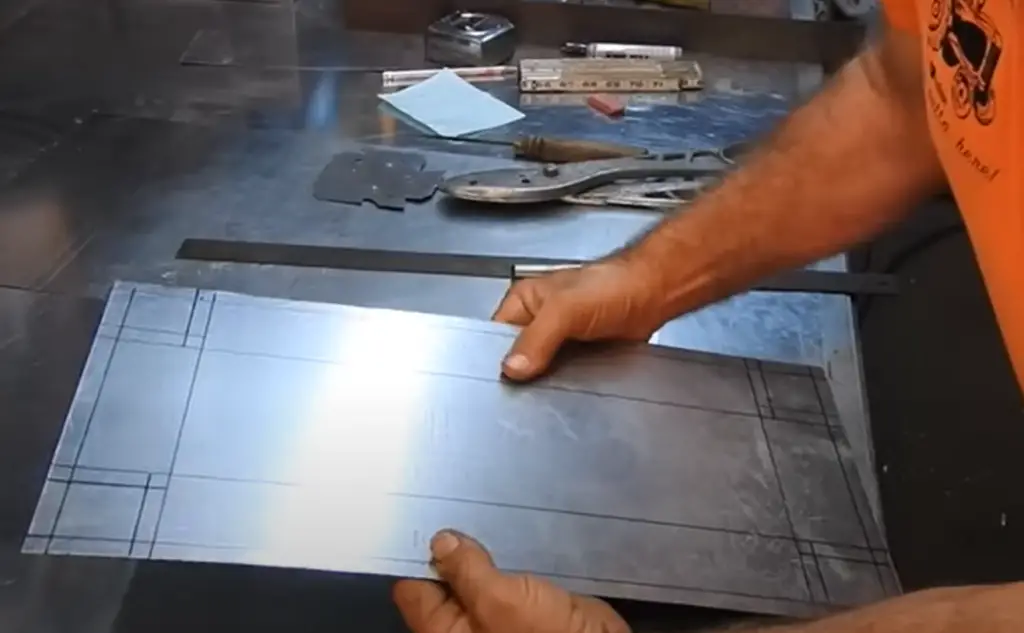
Aside from technical requirements, sheet metal workers should also possess excellent communication skills to effectively collaborate with customers and colleagues.
The ability to work quickly and efficiently with minimal supervision is also critical for meeting tight deadlines.Finally, physical strength is often necessary in order to lift heavy materials and equipment inside industrial settings. [4]
How to Become a Sheet Metal Worker?
Becoming a sheet metal worker requires more than just technical abilities. The job also requires strong communication skills, the ability to work in a team environment and physical endurance.
First, applicants should obtain a high school diploma or equivalent. Many employers prefer those who have taken classes in math and shop related courses. Following high school, completing an apprenticeship program is one of the best ways to get your foot in the door as a sheet metal worker. Apprenticeships combine on-the-job training with classroom learning to teach you all the necessary skills needed to be successful. It typically takes 3-5 years to complete an apprenticeship program but can vary from state to state and by employer.
In addition, many states require sheet metal workers to be certified by the Sheet Metal and Air Conditioning Contractors’ National Association (SMACNA) or a state-level licensing board. Other certifications, such as welding and rigging, may also be required depending on the job.
Learning new technologies is also important for this profession. With technology constantly changing, staying abreast of all the current trends in order to use them effectively will help you stay ahead of competitors. Additionally, seek out continuing education opportunities that can enhance existing skills or add new ones. This can include attending trade shows and conferences or taking short classes and seminars related to your field.
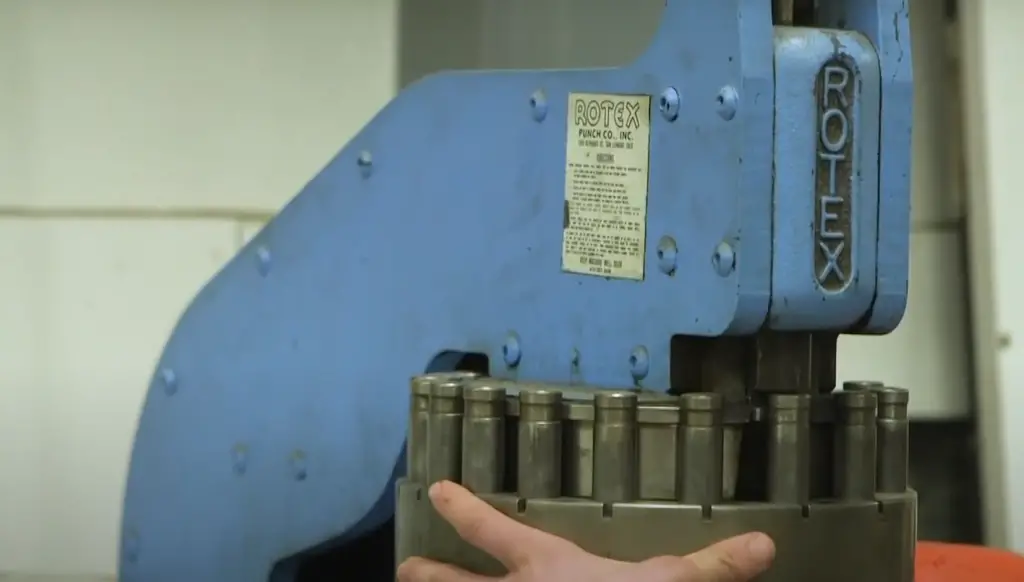
By obtaining the proper training, certification and keeping up with new technologies, anyone interested in becoming a sheet metal worker will have a successful and rewarding career. [5]
FAQ
Is sheet metal working hard?
Yes, sheet metal work can require a lot of physical labor and skill. Workers must be able to lift heavy objects and operate machinery with precision. They also need to have an understanding of the properties of different kinds of metals in order to successfully complete projects.
What is the average salary for a sheet metal worker?
The median annual wage for sheet metal workers is $44,040 as of May 2020 according to the Bureau of Labor Statistics (BLS). This figure is slightly higher than the national median income for all occupations which was $39,810 during that same period. Sheet metal workers with more experience or specialized skills may earn more than this figure.
Are there any other job benefits associated with being a sheet metal worker?
Yes, sheet metal workers often receive benefits such as paid vacation days, health insurance coverage, and retirement plans. They may also have access to educational assistance programs or apprenticeship opportunities that can help them further their career. Additionally, many employers offer overtime pay for hours worked in excess of standard working hours. This is beneficial for those who wish to increase their earnings potential.
What safety precautions should be taken when working with sheet metal?
When working with sheet metal, it is important to take the proper safety precautions to avoid injury and protect yourself from hazards. Make sure you wear protective gear such as gloves and goggles when handling sharp objects or dealing with hot materials. It is also important to inspect all tools before use and follow the manufacturer’s instructions for proper operation. Lastly, make sure to work in a well-ventilated area and always use caution when working with high-powered tools and machinery.
What are sheet metal skills?
Sheet metal workers must have a variety of skills to be successful in their job.

These can include working with and understanding blueprints, cutting and welding materials, bending and forming sheet metal, soldering joints for strength, using tools like shears, punches, and presses to shape the material into its desired form, joining pieces together using rivets or other fastening systems, caulking seams to ensure a watertight seal, creating an airtight fit between components, and installing ventilation ducts. Additionally they may be required to clean tanks and vessels prior to installation or repair work. Sheet metal workers must also possess knowledge of all applicable health and safety regulations when performing these tasks.
Is sheet metal worker the same as HVAC?
No, a sheet metal worker is not the same as an HVAC technician. An HVAC technician works with heating, ventilation, air conditioning, and refrigeration systems, while a sheet metal worker typically specializes in fabricating and installing products made of sheet metal such as ducts and other components used in HVAC systems.
What do sheet metal workers wear?
Sheet metal workers typically wear protective clothing such as safety glasses, gloves, and a hard hat while they are working. They may also need to wear other protective gear depending on the project they are working on.
What can I do with sheet metal?
Sheet metal is a versatile material that can be used for various projects in the construction, engineering and manufacturing industries. It is most commonly used to create roofing, siding, gutter systems, ventilation systems, ductwork and machinery components. Sheet metal also has many applications in art and sculpture due to its malleability. Some advantages of using sheet metal include its low cost, strength and durability. With the right tools and techniques, sheet metal workers can fabricate a wide variety of shapes from flat sheets with precise accuracy. This makes it ideal for any application where custom-made parts are required.
What are the pros and cons of sheet metal working?
Sheet metalworking is a highly versatile and in-demand trade. On the one hand, it offers solid job security with competitive salaries and benefits. However, there are some cons to consider as well. One of the major downsides of sheet metal working is the physical nature of the job. Sheet metal workers must be able to lift heavy objects and use machinery throughout their shifts, meaning they can be exposed to repetitive motion injuries or muscular strain. In addition, depending on where you are located, weather conditions may affect workloads or access to materials or tools. On the other hand, there are many advantages to becoming a sheet metal worker. Because it is an essential trade that does not require extensive training or education, entry level positions are available to individuals with a high school diploma or equivalent. Sheet metal workers also have the opportunity to specialize in different areas, such as HVAC installation and repair, architectural/ornamental metalwork, structural construction, and more.
Useful Video: Sheet Metal Worker – Salary Surfer
Conclusion
Overall, sheet metal workers can expect to make a competitive salary for their work. According to the U.S. Bureau of Labor Statistics (BLS), the median annual wage for sheet metal workers in May 2019 was $48,160 per year. Many factors can affect how much a sheet metal worker can make annually, such as experience level, location and size of employer, hours worked, certifications held and more. With that being said, those considering a career in sheet metal work should research local wages and job opportunities thoroughly before making any decisions. Ultimately, a career in sheet metal work is an excellent way to earn a good living while taking part in an exciting industry with plenty of opportunity for growth.
References:
- https://www.bls.gov/oes/current/oes472211.htm
- https://money.usnews.com/careers/best-jobs/sheet-metal-worker/salary
- https://www.totaljobs.com/salary-checker/average-sheet-metal-worker-salary
- https://www.careerexplorer.com/careers/sheet-metal-worker/
- https://www.careersinconstruction.ca/en/career/sheet-metal-worker

